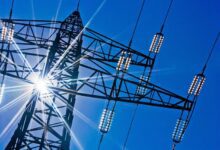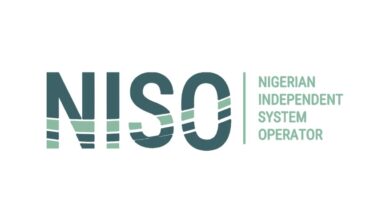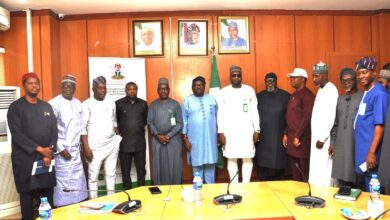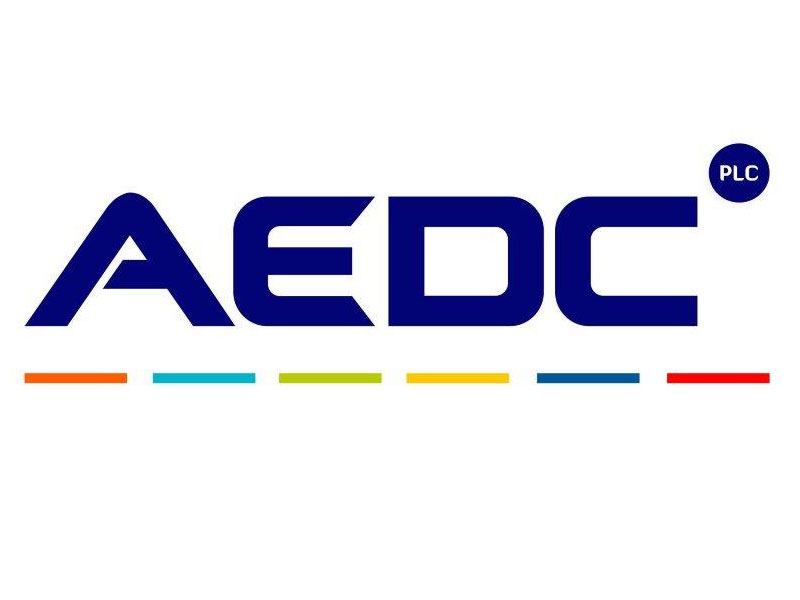Power Sector Liberalisation Will Boost Supply Across Nigeria -Adelabu

The Minister of Power, Chief Adebayo Adelabu has assured that the liberalisation of the power sector by the 2023 Electricity Act would improve power supply across the country.
Chief Adelabu gave the assurance in his keynote Address at the Annual Workshop of the Power Correspondents Association of Nigeria (PCAN) on Thursday in Abuja.
He said that the nation’s regional energy potentials would be explored to boost the power supply in the country.
“With the liberalization of the sector, Nigerians will soon start to experience the objective that led to the Act which is improved power supply across the country.
“We will further explore our regional energy potentials. We will focus on solar energy in the North, mini hydro power plants in the Middle belt and the Southwest, hybridized with solar while our coastal States will be identified for wind energy utilization”, he said.
Adelabu who was represented by the Director, Transmission Service Department of the Ministry, Engr. Emmanuel Nosike noted that the theme for the workshop; “Resolving Nigeria’s Power Crisis: The Implication of the Electricity Act 2023”, was quite apt, considering the President’s avowed desire to provide a regular supply of electricity across the country by liberalizing the power sector through the enactment of the 2023 Electricity Act.
Explaining the significance of the Act, the Minister said, “the 2023 Electricity Act is a significant part of our country’s energy roadmap as it clearly signifies the present administration’s commitment to the transformation of the power sector as clearly stated in the agenda of Mr President as contained in the Renewed Hope Agenda.
“As you are aware, the Electricity Act has liberalized electricity generation, transmission, and distribution. It has also empowered States, Organisations and even individuals to generate, transmit, and distribute electricity.
“Under this Act, State government can issue licenses to private investors to operate power plants and mini-grids, within the States. Private investors can also obtain licenses for generation, transmission, system operations, trading, distribution and supply.
“The Act also encourages the integration of renewable energy technologies into the existing grid system while licensees are expected to meet renewable energy obligations as stipulated by the Nigerian Electricity Regulatory Commission (NERC).
“Among others, the Act also introduced mechanisms for incentives for investment in the sector. Such incentives include feed-in-tariffs which guarantees a fixed price for renewable energy fed into the grid and tax incentives for investors”, he said.
Chief Adelabu further said, “in order to ensure a level playing field for all players in the sector and prevent anti-competitive practices, the Act also provides clear guidelines for the licensing, monitoring, and supervision of market participants.
“Furthermore, the Act guarantees asset protection by allowing investors to sell or transfer their undertakings in the event of revocation of licenses or compensation in the event of takeover of such undertakings.
“Therefore, when we consider the totality of the re-enacted Electricity Act, it has changed the entire landscape of the power sector.
“What this implies is that everyone involved in the power sector value chain must contribute meaningfully in ensuring the successes that are envisaged by the enactment of the Act”, he added.
He, therefore, enjoined the different agencies such as NERC, the Nigerian Electricity Management Services ( NEMSA), Transmission Company of Nigeria (TCN), Nigerian Bulk Electricity Trading Company (NBET), Rural Electrification Agency (REA), Nigerian Electricity Liability Management Company (NELMCO) and even the National Power Training Institute (NAPTIN), to be up and doing, in the different responsibilities that they have been saddled with as contained in the laws setting them up.
He pointed out that the key part of the 2023 Electricity Act was the development of the Integrated National Electricity Policy and Strategic Implementation Plan, adding that the Ministry was working with the National Council on Power (NCP) to develop and send the implementation strategy to the Federal Executive Council (FEC) for approval.
Earlier, in his Welcome Address, the
Chairman, PCAN, Mr. Obas Esiedesa said, the Workshop, from inception three years ago, was intended to build the capacity of the journalists covering the Power sector.
Mr. Esiedesa said, the past two editions, served as a consumer forum where issues bordering on service delivery were resolved.
He noted that the Electricity Act 2023, has prescribed far-reaching changes to how the sector has been governed in the past, especially the devolution of power to the states.
The Chairman, however, advised that the current position of the Act requires strong regulatory bodies to ensure safety and efficient management of the industry.
He said, ten years down the line, the time has come for the Federal Government to take a holistic review of the entire Power sector privatization.
“Not necessarily taking away the assets from operators, but finding solutions to the huge challenges facing the industry”, he said.
The PCAN Chairman said, it was worrisome to note that with over 13,000 megawatts of installed capacity, the industry was still struggling to deliver 4,000MW of electricity on a consistent basis.
“That is why as a group, we welcome the new initiative by the Honourable Minister of Power, Chief Adebayo Adelabu, that has specifically targeted the distribution sector and the consumers.
“We believe that transmission and distribution networks remain the biggest obstacles to efficiency and effective electricity supply in the country.
“We call for sincerity on the part of the government in the implementation of this new initiative unlike what we have seen in the Siemens project and quite a handful of other projects”, he added.






